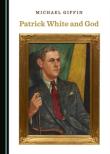AustLit
Latest Issues
AbstractHistoryArchive Description
'The novels of Australia's Nobel Laureate Patrick White (1912-1990) are a persistent commentary on Nietzsche's proclamation of God's death. As White knew the proclamation was not about God's existence, but about classical views of God, it presented him with the impossible task of using language to describe what language cannot describe. This has always been one of the more misunderstood aspects of his literary vision. Because the announcement is often interpreted in antithetical ways, atheistic, theistic, secular, religious, humanistic and fatalistic, critics should gain a better understanding of what White was trying to achieve by comparing him with his post-war contemporaries from England, Scotland, and Canada: Iris Murdoch, William Golding, Muriel Spark and Robertson Davies. After, and because of, the war, these authors all commented on the consequences of God's death. Along with White, they worked with a shared pattern of tropes to explore the light and dark aspects of western consciousness and the civilization it has produced. Where did the pattern come from? Was it metaphysical or metapsychological? These questions are complex as the pattern came from many sources, simultaneously and synergistically, but this book tackles these questions by describing that pattern.' (Publication summary)
Notes
-
Dedication:
Dedicated to
Benedict XVI
logos philosopher
and
Patrick White
mythos poet
Publication Details of Only Known VersionEarliest 2 Known Versions of
Works about this Work
-
The Old Quarrel
2017
single work
essay
— Appears in: Quadrant , March vol. 61 no. 3 2017; (p. 84-88)'Michael Giffin announces his intention early in Patrick White and God, after describing White’s personal-cum-tribal relationship with the Anglican Church:
This book attempts to locate Patrick White’s fiction within a 200-year phase in western philosophy and aesthetics beginning with romanticism in the late 18th century. The attempt is ambitious because his fiction is a critique of western consciousness, in particular its understanding of reason; however, his critique looks like a metaphysics—and perhaps a metapsychology—now challenged by an unstable marriage of promethean science and intersectional politics. Because of this, his religious frame—which remained remarkably consistent during his career—is harder to recognize in the 21st century. (Introduction)
-
The Old Quarrel
2017
single work
essay
— Appears in: Quadrant , March vol. 61 no. 3 2017; (p. 84-88)'Michael Giffin announces his intention early in Patrick White and God, after describing White’s personal-cum-tribal relationship with the Anglican Church:
This book attempts to locate Patrick White’s fiction within a 200-year phase in western philosophy and aesthetics beginning with romanticism in the late 18th century. The attempt is ambitious because his fiction is a critique of western consciousness, in particular its understanding of reason; however, his critique looks like a metaphysics—and perhaps a metapsychology—now challenged by an unstable marriage of promethean science and intersectional politics. Because of this, his religious frame—which remained remarkably consistent during his career—is harder to recognize in the 21st century. (Introduction)




